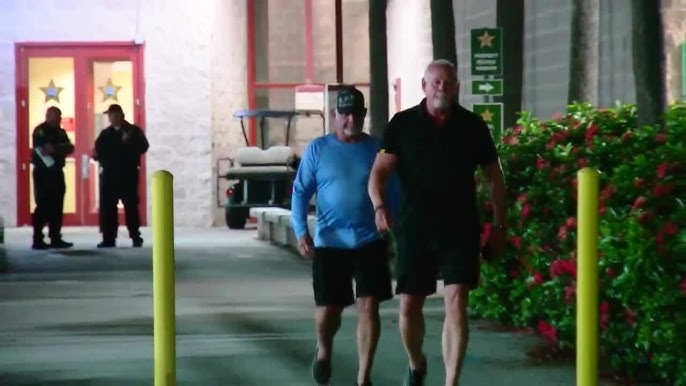
Jeffry Knight Faces Felony Charges After Clearwater Ferry Tragedy
Share
Major Update: Arrest Made Nearly 3 Months Later
Local businessman Jeffry Knight, a well-known St. Petersburg entrepreneur and owner of Jannus Live, has been arrested and charged with eight felony counts of leaving the scene of a boating accident involving death or serious bodily injury. The arrest comes nearly three months after a deadly collision in Tampa Bay that killed one man and injured multiple others.
What Happened on April 27 in Tampa Bay
The crash occurred on April 27, 2025, just after sunset near the Memorial Causeway Bridge. A 37-foot private vessel operated by Knight struck the rear of a Clearwater Ferry carrying around 45 passengers who were returning from the Sugar Sand Festival. The impact was catastrophic. Forty-one-year-old Jose Castro lost his life, and 10 other passengers suffered injuries ranging from minor to severe. The chaotic scene left a lasting mark on Tampa Bay’s boating community and sparked immediate questions about safety and accountability.
Legal Fallout: Charges and Allegations

Knight now faces eight felony charges for fleeing the scene of a fatal or injurious boating collision. Each count carries the potential for decades in prison if he is convicted. Prosecutors from the Pinellas‑Pasco State Attorney’s Office are also preparing misdemeanor charges, which could include failing to maintain a safe speed and failing to keep a proper lookout — violations investigators believe contributed to the fatal incident.
Conflicting Narratives Surrounding the Crash
Knight’s defense team paints a starkly different picture of what happened that night. According to his attorney, Knight stayed at the crash scene initially, rendering aid to passengers and even helping steer the ferry closer to shore. He claims he left only after his own boat began taking on water and because there was an infant onboard. Knight voluntarily submitted to sobriety tests, which reportedly showed no alcohol in his system. His legal team has also alleged that the ferry captain was distracted by dolphins and failed to display proper navigational lights — factors they argue contributed to the crash.
Investigators and witnesses, however, dispute much of Knight’s narrative. The Florida Fish and Wildlife Conservation Commission (FWC) found no evidence that Knight’s vessel was flooding or listing after the collision. Passengers and nearby boaters who aided rescue efforts have also challenged Knight’s claims about lighting and distractions, insisting the ferry was clearly visible. Audio recordings from the scene captured frantic screams as victims cried for help in the chaotic aftermath.
Victim’s Family Speaks Out
Jose Castro’s family has been vocal since the crash, demanding justice for the 41‑year‑old father and son. Castro’s mother traveled from Peru to Pinellas County, where she tearfully pleaded for accountability, saying her son’s death could not go unpunished. His sister echoed that sentiment, stating plainly that no excuse would bring her brother back. For many in the community, their grief has become a rallying cry for safer boating practices and stricter enforcement on Florida’s crowded waterways.
What Happens Next
Authorities plan to hold a press conference to provide updates on the investigation and pending court proceedings. Meanwhile, the Coast Guard continues its own review, examining compliance with navigational rules and equipment standards on both Knight’s vessel and the Clearwater Ferry. Civil lawsuits have already been filed by injured passengers and Castro’s estate, adding another layer of legal complexity to a case that is far from over.
Why This Case Matters Locally
The tragedy has struck a nerve across Clearwater and St. Petersburg, sparking heated debate over boating safety and accountability. Beyond the courtroom, the case raises larger questions about enforcement on Tampa Bay’s increasingly busy waters, where ferries, recreational boats, and tourist charters frequently cross paths. For many residents, the outcome will set a precedent for how similar incidents are handled in the future — and whether victims and their families see justice served.
